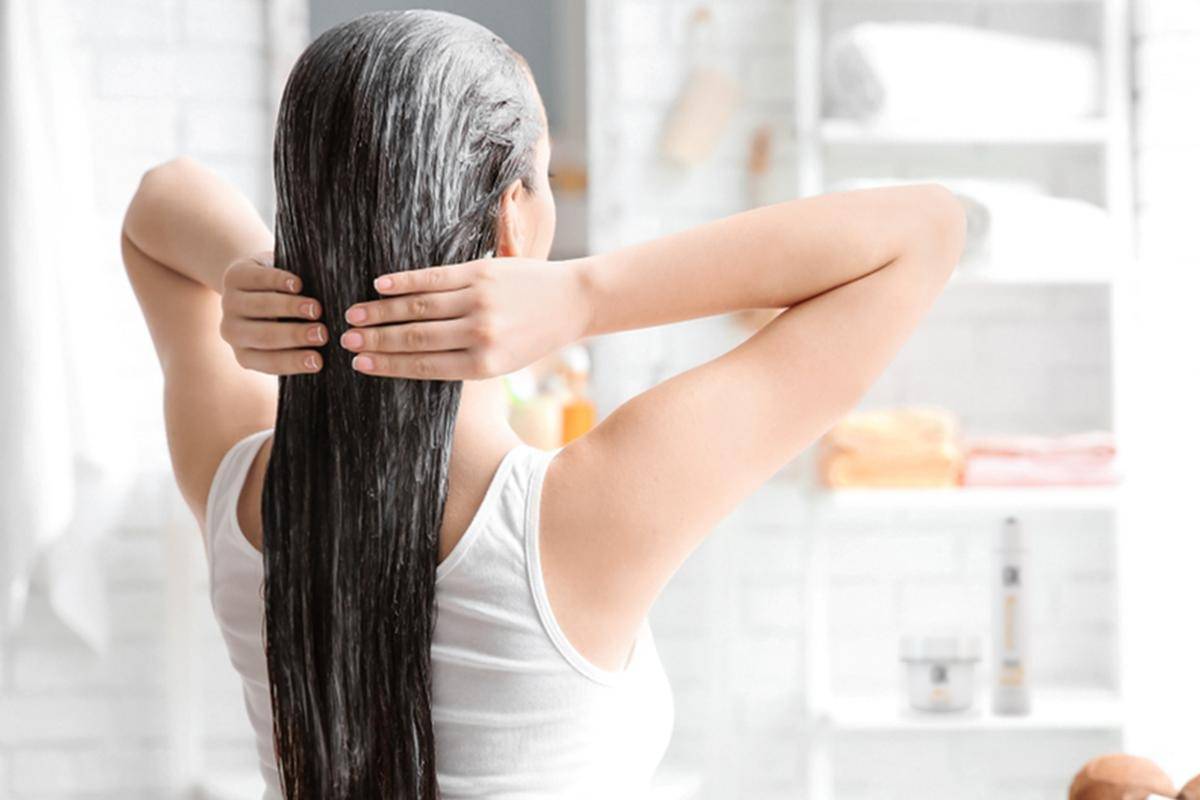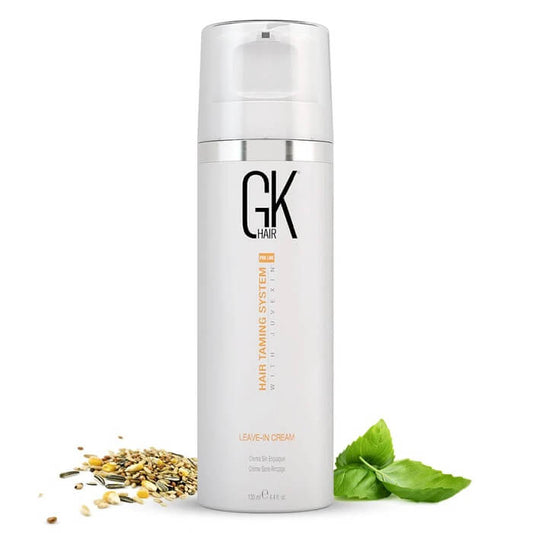Have you ever wondered if it is possible to leave conditioner in your hair? It might have crossed everyone's mind for a moment and for you to be here, you may be searching for the answer too. Leaving hair conditioner in our hair may seem like a convenient way to save time, but could it be damaging for your hair in the long run? In this article, we will discuss whether conditioner can be left in the hair and what effects it may have on the condition of your hair. We will also provide tips on how to apply conditioners properly. Read on to learn more about this topic and make an informed decision based on reliable information.
What does hair conditioner do?
A hair conditioner is a widely used product crafted to enhance hair condition by moisturizing, strengthening, and detangling. It also serves to shield hair from damage caused by environmental elements like sun exposure and heat styling. Typically, conditioners include proteins, keratin, oils, and humectants. These components work together to hydrate hair shafts, soften them for effortless styling, and lock in moisture. GK Hair's Moisturizing Conditioner encompasses all the necessary ingredients for dry hair and is a favored choice. Its formula, enriched with Juvexin, nourishes and protects the hair.
Conditioners work by coating each strand of hair with a thin layer of these beneficial ingredients. This helps to reduce friction when brushing and styling your hair, making it easier to manage without causing breakage or damage. Conditioners also work to fill in any gaps or ridges on the surface of each strand, which can lead to split ends or breakage if left unchecked. Additionally, using conditioner after shampooing helps lock in moisture and nutrients into your hair follicles so they remain healthy and strong.
Can you leave a conditioner in your hair?
Leaving conditioner in your hair for too long can be damaging to the health of your hair. While some conditioners are designed to stay on overnight, leaving them in for longer than recommended can cause an accumulation of product, leading to dryness, breakage, and split ends. However, as mentioned, there's already a different variety of hair conditioners that allows you to leave it longer or overnight. Let's discuss the type of conditioners:
Leave-In Conditioners
Due to its numerous benefits, leave-in conditioners have become a popular choice for many stylists. These conditioners are applied after shampooing and before styling, allowing your hair to stay hydrated and healthy without rinsing off. Some leave-in conditioners provide protection from environmental factors such as sun exposure and heat damage while also detangling, strengthening, and moisturizing hair shafts. They can also fill in any gaps or ridges on the surface of each strand, which can lead to split ends or breakage if left unchecked. Using leave-in conditioner overnight can reap all these fantastic benefits with minimal effort!
Rinse-Out Conditioners
Rinse-out conditioners are the most common type of conditioner that you can see on everyone's vanity shelf. These are the conditioners that we use right after shampooing our hair and rinse out after a few minutes. Shampooing the hair can have a drying effect on hair, and these conditioners help rehydrate the hair while protecting the strands. A Balancing Conditioner is a good choice for a rinse-out conditioner, especially for people with oily hair. This conditioner balances moisture to your hair strands and keeps it oil-free.
Deep Conditioners
Deep conditioners are an intensive treatment for the hair, designed to penetrate deep into the hair shaft and provide extra nutrients. Unlike rinse-out conditioner, which is used for short periods, deep conditioners should be left on the hair for more extended periods to achieve maximum benefits. It has a thick consistency unlike the two mentioned types of conditioner and is commonly used by people with curly, coily, or color-treated hair. It should also be noted that these conditioners can not be used regularly and should only be used once or twice a month, depending on how damaged the hair is.
How to use conditioners
Since you already know that several types of conditioners exist and how they work, let's dive into how these conditioners are used.
To use rinse-out conditioners:
Rinse-out conditioners are applied after shampooing and must be rinsed off with lukewarm water.
Step 1: Wet down your hair with water before applying the conditioner.
Step 2: Take a small amount of the product into your hands and massage it through the ends of your strands.
Step 3: Leave it on for around two minutes before rinsing thoroughly with lukewarm water.
Step 4: Gently pat dry your hair with a towel or air dry naturally for best results!
To use leave-in conditioners:
Step 1: After shampooing your hair, take a few drops of the leave-in conditioner into your hands and massage it through the length of your strands.
Step 2: Once you have evenly distributed the product throughout your hair, detangle it with a wide tooth comb to help evenly distribute the product.
Step 3: To add extra shine and nourishment, apply a small amount of conditioner to any dry areas or ends of the hair strands.
Step 4: Do not rinse out the conditioner.
Step 5: Gently pat dry any excess moisture and style as desired.
Step 6: If you are using a heat styling tool, apply a heat protectant spray prior to using it on your hair to protect it from any unnecessary damage.
Step 7: To get even better results and ensure that all of the nutrients from the leave-in conditioner are absorbed by your hair follicles, cover your head with a plastic shower cap or towel overnight. This will help allow for deeper penetration while also providing heat that aids in healing damaged strands.
To use Deep Conditioners:
Step 1: Begin by shampooing your hair with a clarifying or sulfate-free shampoo to remove any dirt, build-up, and oils from hair. This will help the deep conditioner penetrate into the strands more effectively.
Step 2: After shampooing, apply a generous amount of the deep conditioner and work it through the length of your strands, focusing on any particularly damaged areas.
Step 3: Use a wide tooth comb to make sure that you evenly distribute the product throughout your hair.
Step 4: Once you have evenly distributed the product throughout your hair, cover it with a shower cap or towel for up to half an hour. OPTIONAL: You can also try using a hooded dryer or steamer to add extra heat and moisture to help with absorption.
Step 5: After allowing it time to sit, rinse out thoroughly with lukewarm water until all residue from the conditioner has been removed from hair.
Step 6: Gently pat dry with a clean towel before styling as desired.
Step 7: To get extra nourishment for very damaged strands, try wrapping warm damp towels around your head for 20 minutes after you have applied the deep conditioner. This will help lock in moisture and give your hair extra softness!
The Best Conditioner for hair
So, after all that information, what is the best conditioner after all?
The best hair conditioner will depend on various factors, including the type of hair you have and the level of damage your strands need to recover from. For example, if you have dry or damaged hair, GK Hair's Moisturizing Conditioner would be your best conditioner. It has a gentle formula that perfectly treats dry, damaged, and brittle hair. On the other hand, if you have oily or limp hair that tends to become greasy quickly, a Balancing Conditioner might be more beneficial than a deep conditioning one.
When shopping for the best hair conditioner for your individual needs, it's important to read labels carefully and choose one that is specifically designed for your particular hair type (e.g., curly/straight/wavy) and concerns (e.g.,damaged/oily/dry). It's also essential that you read reviews online – not only from professionals but also from real people – as they will offer insight into how well certain products work in real-world scenarios! Furthermore, make sure that you choose a product that doesn't include harmful chemicals that may damage the hair. GK Hair's Conditioners are all sulfate and paraben free, ensuring that your hair is taken care of. At the end of the day, we just want a good hair day (everyday!)
FAQ's
Is leaving hair conditioner in overnight beneficial?
Leaving hair conditioner in overnight can be beneficial for deep hydration. It allows the conditioner to penetrate the hair shaft more effectively, promoting increased moisture retention and improved overall hair health.
Can I use any type of conditioner for leave-in treatment?
Not all conditioners are suitable for leave-in treatment. Look for conditioners specifically labeled as "leave-in" or "conditioning treatments" to ensure they are formulated for extended use. These products are designed to provide benefits without the risk of overloading the hair.
How often should I leave conditioner in my hair for optimal results?
The frequency of leaving conditioner in your hair depends on your hair type and its specific needs. For most people, a weekly leave-in treatment can be beneficial. However, those with very dry or damaged hair may benefit from more frequent applications, while those with oily hair should use it more sparingly. Adjust based on your individual hair requirements.

















Leave a comment